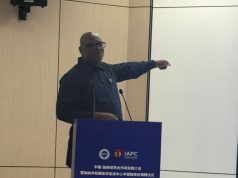Ghana’s acting Chief Justice, Paul Baffoe-Bonnie, has assumed centralized authority over the assignment and scheduling of all new cases filed in the country’s superior courts, according to a directive issued on April 23, 2025.
The move marks a significant shift in judicial administration, requiring registrars at the Supreme Court, Courts of Appeal, and High Courts to submit fresh cases and applications directly to Baffoe-Bonnie’s office for review.
Under the new protocol, the acting Chief Justice will determine which court or panel of judges handles each matter, as well as set hearing dates. The directive, communicated by the Deputy Judicial Secretary, replaces previous decentralized procedures and aims to standardize oversight across the judiciary. Court registrars nationwide have been instructed to enforce the policy “strictly,” with no specified end date for the arrangement.
The change consolidates decision-making power previously held by individual court registrars, who traditionally managed case assignments based on established guidelines. Proponents argue the centralized system could reduce inconsistencies in case distribution and curb potential biases in judicial assignments. However, legal observers note the shift raises questions about efficiency, as funneling all new filings through a single office may slow initial processing times.
Ghana’s judiciary has faced periodic scrutiny over case management practices, including allegations of forum shopping and uneven workloads among judges. The reform aligns with broader efforts to enhance transparency in the courts, though some analysts caution that concentrating authority in the Chief Justice’s office could create bottlenecks. Similar centralized models exist in other Commonwealth nations, such as Kenya and Nigeria, where they have drawn mixed reviews over balancing accountability with administrative agility.
The directive emerges as Baffoe-Bonnie oversees ongoing modernization initiatives, including digitization of court processes. While the immediate focus remains on implementing the new case assignment framework, the acting Chief Justice’s office has yet to clarify whether additional reforms will follow. Legal practitioners await practical impacts on court operations, particularly in high-volume jurisdictions where timely case resolution remains critical to public trust in the judicial system.
Send your news stories to newsghana101@gmail.com
Follow News Ghana on Google News


















